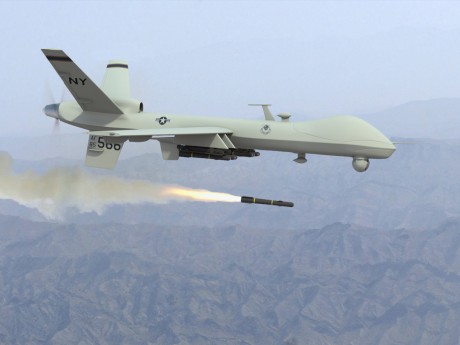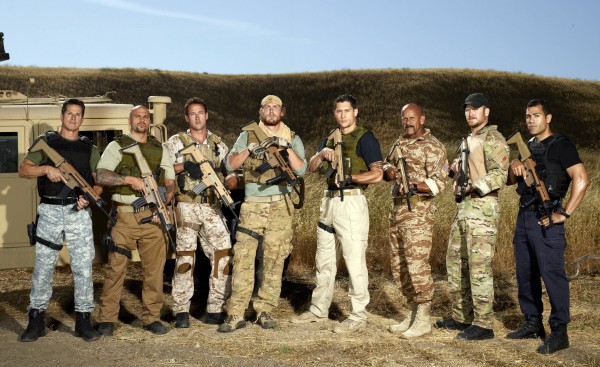“Chickenhawk.”
Anyone who paid attention to the debate preceding and immediately following the invasion of Iraq was familiar with the term. It was a slur – coined by the Left – describing those conservatives of military age who were beating the war drums but not actually willing to enlist.
I describe the phrase as a “slur” because it was obviously intended as an insult – a shaming tactic – not an argument. In fact, it was utterly irrelevant to the wisdom of the war itself. The war was the right or wrong decision regardless of the willingness of any conservative pundit or activist to enlist. In 2003, there was no shortage of volunteers willing to fight – and, if necessary, die – on Iraqi battlefields far from home.
Hidden within this insult, however, was a searing truth: While irrelevant to policy, it raised troubling personal questions. Why don’t more young people serve? Why were so many advocating war without even the thought of joining themselves? Was there a personal moral obligation to offer yourself to your country if you believed so strongly that your peers should fight?
These are questions I struggled with, almost from the moment the airplanes hit the World Trade Center. Finally, after four full years of rationalization and self-justification, my conscience could bear it no longer. I could not continue to support a war that I wasn’t willing to fight myself.
So I volunteered, passed my physical, got an age waiver, and two years later found myself in Iraq doing what I could to serve the heroes of 2d Squadron, 3d Armored Cavalry Regiment as we chased al Qaeda across 17,000 square kilometers of Diyala Province, Iraq. It was the most difficult (and even though I was just a JAG officer, the most terrifying) year of my life. I lost friends who had grown as close as brothers and saw horrors that more than 99% of my fellow citizens will never see. I did what I could and serve still, as a captain in the Army Reserves. Compared to thousands who gave their lives, the tens of thousands of maimed and wounded, and the hundreds of thousands of front-line soldiers who braved bombs and bullets daily, my service was nothing special. But at least I have an answer to my future grandchildren’s question: “What did you do when the terrorists attacked America?”
Why bring this up? Because of this video:
I saw it last week and frankly found it silly. While true pacifism can be courageous and inspirational, much of what passes for pacifism in the progressive evangelical Left is more political posturing than true pacifism. For one thing, it’s often dominated by both a false moral equivalence and an almost willful misunderstanding of our enemies. If America would only lay down its arms, peace would break out. If only Israel would cease its self-defense, the inherent virtue and glory of the Muslim world usher us all into the era of shalom.
In reality, this isn’t “moral equivalence” because the argument is presented one way: against Americans (and Israelis) only. The Sojourners’ “War No More” video has no intended audience outside the U.S. and would have no effect at all on the Taliban, al Qaeda, Hamas, Hezbollah, or any other truly jihadist organization.
But my problems with contemporary pacifism go much deeper than the false moral equivalence and the often-sappy and naïve utopianism.
Reading through the very interesting blog of fellow Patheos contributor Kurt Willems, I came across this statement of Anabaptist theology and nonviolence:
10. Belief that the gospel includes a commitment to the way of peace modelled by the Prince of Peace.
Here Anabaptists differ from many other Christians. Anabaptists believe that the peace position is not optional, not marginal, and not related mainly to the military. On the basis of Scripture, Anabaptists renounce violence in human relationships. We see peace and reconciliation – the way of love – as being at the heart of the Christian gospel. God gave his followers this ethic not as a point to ponder, but as a command to obey. It was costly for Jesus and it may also be costly for his followers. The way of peace is a way of life.
As I read, I came to the sudden realization: The overwhelming majority of American pacifists are, well, chickenhawks. In other words, their pacifism is exactly as costly to them as militarism is to the civilian pundit. They are bystanders to the pain of others — mere commentators as hundreds of thousands of their fellow citizens risk everything.
Our progressive civilian pacifists sit in the midst of the most prosperous society in human history, enjoying the fruits of the sacrifice of literally millions who came before them – the millions who stopped fascism, the millions who bled and died to end slavery, the millions who stood on the wall guarding against the dark night of Soviet communism – and they offer what?
At most they offer an argument. Usually, they merely offer a complaint. Sometimes the argument is delivered with humility and grace, while the complaint is typically delivered with condescension, self-righteousness, and scorn. But at the end of the day, while war rages, they offer words — words heard only by one party of a multi-party conflict.
I spent a year in Diyala Province and roamed up and down IED-infested roads. There were no Anabaptists risking their lives, pleading with al Qaeda for peace or placing themselves between innocent civilians and the long knives of their jihadist oppressors.
Others soldiers have spent far more time in the war zones than I have. They’ve been in Baghdad, in Anbar, in Kandahar, and have shivered in the mountain passes of Eastern Afghanistan. They don’t report seeing Anabaptists, either.
To be sure, there are many Christian pacifists in dangerous parts of the world, trying to bring peace and reconciliation (just as there are many “just war” Christians working side by side with them), but what about pacifists in the midst of actual wars? Are they throwing their bodies in the way of the tanks, the technicals, the IED emplacers, and the JDAMs? With the exception of very tiny Christian Peacemaker Teams that tend to place themselves firmly on the side of jihad, they are nowhere to be found.
And, no, I’m not talking about the “human shield” clown shows that exist at the whim of their despotic sponsors in Gaza or Saddam’s Iraq. These human shields end up shielding only tyranny — secure in the knowledge that western militaries will do all they can to avoid targeting their own civilians while doing nothing to stop the reign of terror of their hideous hosts. I’m talking about actual pacifists placing themselves between both sides of a conflict, trying to stop not just their own armies but the terrorism and genocide of jihadists.
Is it unfair to ask my pacifist fellow citizens to place themselves in harm’s way? After all, I know better than most the likely consequence of going to a jihadist-dominated war zone not as a propaganda tool but instead as an actual opponent of both sides’ violent actions.
My thoughts are hardly original. Here is noted Christian progressive Ron Sider:
Those who have believed in peace through the sword have not hesitated to die. Proudly, courageously, they gave their lives. Again and again, they sacrificed bright futures to the tragic illusion that one more righteous crusade would bring peace in their time. For their loved ones, for justice, and for peace, they have laid down their lives by the millions.
Why do we pacifists think that our way — Jesus’ way — to peace will be less costly? Unless we Mennonites and Brethren in Christ are ready to start to die by the thousands in dramatic vigorous new exploits for peace and justice, we should sadly confess that we really never meant what we said. We did, of course, in earlier times. In previous centuries, we died for our convictions. But today we have grown soft and comfortable. We cling to our affluence and our respectability.
And this:
Unless we are prepared to pay the cost of peacemaking, we have no right to claim the label or preach the message.
I will say this in pacifists partial defense: We live in an era when – even during wartime – the vast majority of our citizens and the vast majority of Christian America lacks the courage of its convictions. We are willing to go only so far, and no further, in pursuit of the truth. We believe that we’re brave if we endure criticism and give ourselves points for standing outside a perceived mainstream, when in a nation of more than 300 million people you can almost always find a community.
And so pacifists go with the flow, like most of the rest of us. No worse and certainly no better than the fellow Christians they so often hold in contempt.
I happen to think that thousands or even hundreds of American Christians standing together in the world’s darkest places could have a dramatic impact on the course of a conflict. It’s conceivable that even some of the world’s worst regimes would think twice before extinguishing the lives of so many western civilians. But such an pacifist intervention will never, ever happen — at least not in the face of an enemy as bloodthirsty as the Taliban or as vile as Hamas.
Why not? Perhaps because Ron Sider was right — because the vast majority of pacifists never really meant what they said. I think the explanation is a bit more charitable and a lot more human. Pacifists don’t want anyone to die — themselves least of all.










